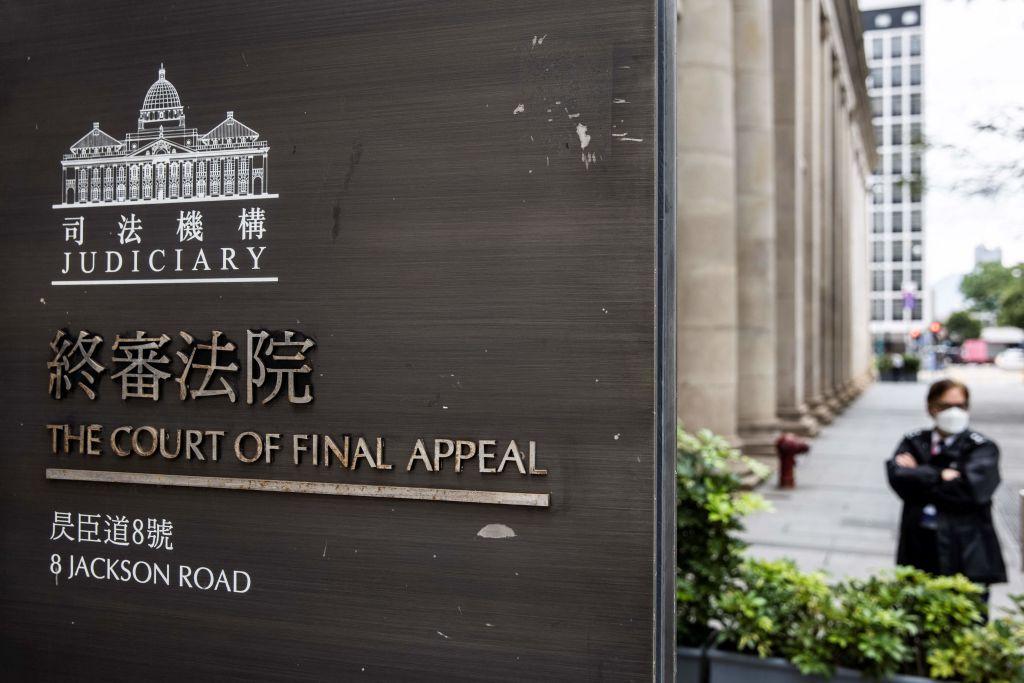
The issue of foreign judges sitting on Hong Kong’s Court of Final Appeal was raised again recently, when a former president of the UK Supreme Court, Brenda Hale, said: ‘There’s going to come a stage where [British judges on the CFA] are asked to apply and enforce unacceptable laws, and some of us might think that that stage has already come.’ That statement followed the resignation from the CFA of two current judges of the UK Supreme Court in March. At the time, Robert Reed and Patrick Hodge explained that they could not ‘continue to sit in Hong Kong without appearing to endorse an administration which has departed from values of political freedom, and freedom of expression’.
Both Reed and Hodge served as non-permanent judges in Hong Kong by virtue of being current justices of the UK Supreme Court and with the endorsement of the UK government. This practice was intended to support the independence of Hong Kong’s judiciary under the ‘one country, two systems’ arrangement after sovereignty over the island was transferred from the UK to China in 1997. Previously, the Privy Council served as the final appellate court for Hong Kong.
Explaining the UK government’s decision to withdraw support for current UK Supreme Court justices to sit on the CFA, then–foreign secretary Liz Truss said, ‘It is no longer tenable … and would risk legitimising oppression.’
But with Beijing effectively dismantling any pretence of civil liberties in Hong Kong since imposing the national security law in 2020, the Australian government faces its own questions regarding the three former judges of the High Court—Robert French, Murray Gleeson and William Gummow—who continue to sit as non-permanent judges on the island’s highest court. Former NSW chief justice James Spigelman resigned from the CFA in September 2020 during Beijing’s imposition of control. The remaining Australian judges declined to follow Spigelman, saying in March this year that they ‘support the judges of the Court of Final Appeal in their commitment to judicial independence’.
Historically, the CFA has been an important bulwark for the rule of law in Hong Kong and a core element of the island’s status as a commercial and financial hub, with foreign companies attracted by its independence and common-law pedigree. A critical component of this has been the appointment of overseas non-permanent judges from other common-law jurisdictions, namely Australia, Canada, New Zealand and the UK. At present, the remaining overseas appointments are six Britons, three Australians and one Canadian. These are part-time roles usually held by eminent retired judges.
An argument in favour of overseas judges staying on the court is that they could curb the erosion of civil liberties. However, they can be effectively excluded from hearing any cases involving the national security law—and, in any respect, overseas judges have little capacity to exert meaningful influence alone, given that each case is heard by a panel of five justices, four of whom are local to Hong Kong.
The UK made the right decision in withdrawing Reed and Hodge. Their ongoing appointments represented an implicit endorsement of Hong Kong’s governance system, which has changed radically from that envisioned by the Sino-British joint declaration. Removing the judges also demonstrates that China cannot seek to retain the commercial benefits of the common law in Hong Kong while discarding its civil and political elements.
Australia, the UK and Canada have condemned the repression imposed on the island by Beijing since 2020. It is inconsistent, then, with each country’s interests that the status and legitimacy of their distinguished jurists, and the independent judicial systems they embody, continue to lend legitimacy to Hong Kong’s increasingly tenuous claim to uphold the rule of law.
The challenge, however, is that the remaining 10 overseas judges serve entirely in their personal capacities, unlike Reed and Hodge, meaning that their governments cannot so directly influence a decision to resign.
It is probably within the Commonwealth’s external affairs power to legislate to ban Australian citizens from serving on designated foreign courts. Any such steps should, however, be a last resort. In the first instance, the Department of Foreign Affairs and Trade and the Attorney-General’s Department (working with its state and territory counterparts) should develop a strategy to ensure that no further judges of Australian superior courts take up appointments in Hong Kong in retirement. A low-key program of private briefings with current judges should suffice. More broadly, Australia should also actively coordinate with Canada, New Zealand and the UK to discourage each nation’s current and former judges from taking up any further appointments to the CFA.
While such steps might fix the issue in the long run, they won’t resolve the immediate fact of the three current judges. This could mean that Foreign Minister Penny Wong and Attorney-General Mark Dreyfus need to quietly lobby the remaining judges to, at least, not accept further three-year appointments at the expiry of their current terms.